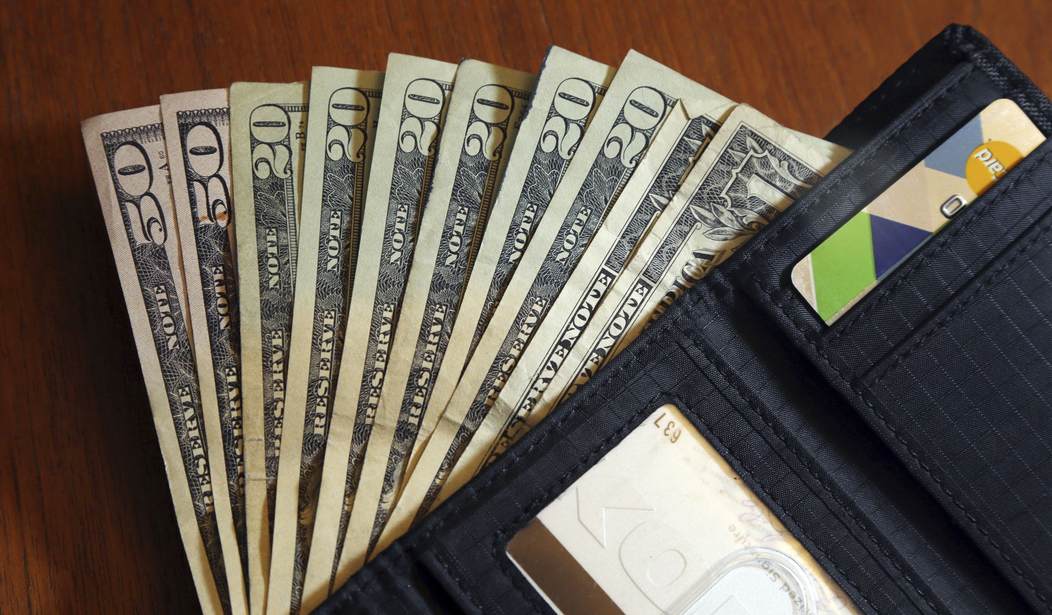Given the number of stories we’ve already covered here about people who have been arrested for defrauding the various COVID relief programs currently in place, one question has always remained. The fraudsters we reported on are only the ones that managed to get caught. But how many more are out there and how much of the taxpayers’ money have they managed to steal? Now the Secret Service is chiming in with at least a partial answer to that mystery. They’ve been investigating reports of fraud themselves and compiling that information with reports from the Labor Department and Small Business Administration. The numbers they released this week are nothing short of staggering. They concluded that at least $100 billion in relief funds were pilfered and that figure doesn’t even include all of the cases investigated by the Department of Justice. (Associated Press)
Nearly $100 billion at minimum has been stolen from COVID-19 relief programs set up to help businesses and people who lost their jobs due to the pandemic, the U.S. Secret Service said Tuesday.
The estimate is based on Secret Service cases and data from the Labor Department and the Small Business Administration, said Roy Dotson, the agency’s national pandemic fraud recovery coordinator, in an interview. The Secret Service didn’t include COVID-19 fraud cases prosecuted by the Justice Department.
While roughly 3% of the $3.4 trillion dispersed, the amount stolen from pandemic benefits programs shows “the sheer size of the pot is enticing to the criminals,” Dotson said.
One of the items from this report that I found particularly surprising speaks to the volume of this illegal activity that’s been going on. The Secret Service actually has a recognized position for a “National Pandemic Fraud Recovery Coordinator.” There are so many people ripping off these programs that the Secret Service actually had to establish a separate office to keep track of all of the prosecution and recovery efforts.
Mr. Dobson’s observation that the massive amounts of money flushed into these relief programs is “enticing to the criminals” is about as surprising as a ruined pair of pants after you sit on a bench displaying a “wet paint” sign. While the criminals who perpetrate these schemes are clearly the ones at fault, the numbers being reported should lead us to ask some questions of the federal government. Shouldn’t they have put some measures in place to at least make it a little bit harder to rip off these funds?
Most of the headlines related to these thefts have dealt with the Paycheck Protection Program, which turned out to be ludicrously easy to defraud. But according to the Secret Service, the amount of money stolen from PPP is only a small fraction of the total that has been pilfered from the federally enhanced unemployment benefits that were being handed out until a few months ago. Of the at least $100 billion that’s been stolen, as much as $87 billion may have been taken via unemployment fraud. We’re forced to use the phrase “as much as” because they simply don’t know how many people filed fraudulent claims and went undetected.
The fraudulent unemployment claims are particularly insidious because many of the suspected thieves are operating out of other countries, making enforcement efforts far more complicated. They obtain the addresses of vacant houses and file claims in the names of people whose digital identities have been stolen using those “new” addresses for them. Then when the money is approved to be paid via debit cards or similar electronic means, they can quickly transfer the funds to accounts in other countries and be gone before they are detected. Washington State was hit particularly hard with this type of thievery for some reason.
Now the President is talking about additional rounds of similar relief measures in the coming year. Rather than rushing headlong into the same trap, is it possible that we might learn something from these experiences and build stronger anti-fraud protections into the legislation? Or is that too much to hope for from our swamp dwellers in DC?








Join the conversation as a VIP Member